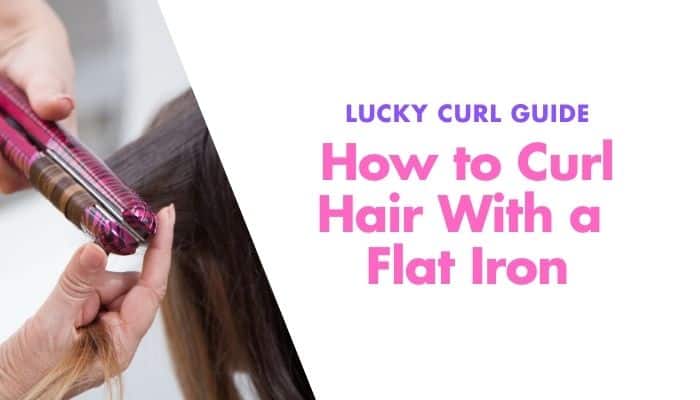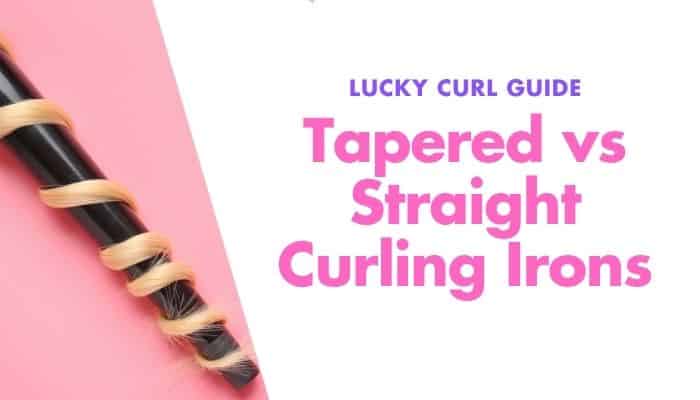I swear by coconut oil. When people ask me what I put on my hair to make it look better after heat styling and color treatments, they’re surprised to find out that I use the humble coconut oil, that trusty kitchen essential. It’s softened my hair noticeably and leaves it with a healthy shine even after the stress I put my tresses through. Treating hair damage is a priority for me because I experiment with hair tools and styles a lot. Using coconut oil for hair treatments has immensely improved the health of my locks.
11 Benefits of Coconut Oil for Hair
-
Conditions and softens hair
Coconut oil is highly moisturizing and great for deep conditioning because it contains the medium chain fatty acid lauric acid that penetrates the hair more effectively than other oils. You can use it by itself as a stand-alone conditioner or add a few drops to your regular treatment.
-
Effective pre-shampoo treatment
Are your locks feeling brittle from harsh sulfate shampoos? Try applying coconut oil before shampooing to help keep your natural oils locked in where it should be, not spiraling down the shower drain.
-
Creates shine
Aside from conditioning the hair strand from the inside, coconut oil creates instant shine. Apply it to the lengths of the hair with a light hand to help prevent greasiness.
-
Stimulates hair growth
Coconut oils contains vitamins and fatty acids that are good for hair and scalp health. It also lifts dirt and buildup from the scalp to promote an optimal environment for hair growth.
-
Tames unwanted frizz
A few drops of coconut oil on damp hair can tame frizz by sealing the hair cuticle so the scales lay flat on the strand. It gives hair a moisture boost in humid weather or when you’re getting frizzy due to split ends.
-
Repairs and restores damaged ends
And speaking of split ends, coconut oil is a temporary fix for damaged hair and fraying strands. It helps prevents hair from splitting, too, by moisturizing hair from within so hair grows stronger.
-
Nourishing leave-in treatment
Coconut oil and sunshine sounds reminds me of warm days on the beach but it’s also a good combo for an at-home hot oil treatment. During summers and hot days, apply the oil to your locks and bask under the sun to allow the oils to sink in. This works for reviving damaged hair and preventing protein loss by locking in moisture.
-
Effective natural treatment of head-lice
The viscosity of coconut oil makes it a great all-natural lice treatment. Mix it in with tea tree oil to help kill the critters and rinse it out with apple cider vinegar.
-
Hydrating scalp treatment for dandruff
Coconut oil moisturizes the scalp and has antimicrobial properties that can help banish flakes. Slather the oil on the roots and massage it in, then shampoo thoroughly afterward.
-
Detangles stubborn locks
When your brush is catching on knots, a quick of dab of coconut oil provides slip that makes detangling easy peasy.
-
Protection and repair against sun damage
Coconut oil is a natural sunscreen with an SPF of 8. Since hair is as susceptible to sun damage as skin, make sure to shield your strands from harmful UV rays with a few drops of coconut oil.
How to Use Coconut Oil – Two Ways
Here are some simple ways to use coconut oil on your hair.
How To #1
How to Use Coconut Oil as a Hair Mask
- Warm up the oil.
Start by warming up the oil on a stovetop or in a microwave. This liquefies the oil so it’s easier to apply and helps the fats penetrate the hair shaft better. The oil should be warm but not hot. - Apply oil to your hair.
Next, section your damp (not dry) hair for equal coverage. Coat the hair from the roots to tips with a small amount of oil, making sure to distribute it evenly and concentrate on the dry areas. If you have oily hair, you can skip the area and start on the mid-lengths of the strands. - Leave it on the hair for 15 to 30 minutes.
Put your hair up in a shower cap followed by a hot towel. If you’re in a pinch, you can use any old t-shirt as an alternative. Leave it on for at least 15 minutes and if your hair is extra parched, let it soak overnight. - Wash out the coconut oil thoroughly.
The oil can be very sticky so be sure you wash it out completely from your strands. This may take several rinses. When your hair feels light and less greasy, that’s a sign that it’s done. Alternately, you can use shampoo to help remove all the oil residue.
How To #2
How to Apply Coconut Oil as Frizz-Taming Hair Oil
- Warm up the coconut oil.
Heat up the coconut oil on a stovetop or in the microwave until it’s warm but not boiling hot. You want a liquefied consistency that’s spreadable. - Apply a liberal amount of oil to the ends or flyaways.
Apply a small amount of oil on the tips of the hair (a few drops) and any strands that are sticking out. Use the oil to tamp down frizz and flyaways. Be sure not to slather a huge amount of coconut oil as it will weigh down and make it greasy. What you want is a natural healthy shine on the ends. - Style as normal.
Carry on with the rest of your styling routine. Blowdry, brush, and apply your usual hair products.
Using Coconut Oil on Hair: FAQs
What kind of coconut oil is best to use?
Extra virgin coconut oil is the most unadulterated form of coconut oil, meaning it retains most of the nutrients and antioxidant benefits. It’s made from the fresh pulp of coconuts, undergoing a mechanical process without chemical treatments.
This fresh coconut oil is nutrient-dense and rich in saturated fats, something your hair will drink up. Extra virgin coconut oil is also gentle on the strands because of its natural composition.
When shopping for a bottle, make sure to get one without any additives.
What you don’t want to buy is refined or regular coconut oil. This is made dried coconut meat and then heated to remove unwanted smells. It’s bleached to get rid of dirt and bacteria and filled with cehmical solvents. Try to stay away from this type of coconut oil because its benefits are subpar, to say the least.
Why is coconut oil better at protecting your hair than other oils?
Coconut oil is better because of its high fat content. Specifically, it’s rich in fatty acids called medium chain fatty acids (MCFAs) which have superior health benefits than other kinds of acids.
These also have antimicrobial and antibacterial properties that protect the hair. These fats moisturize the strands by penetrating deep into the hair cortex.
MCFAs like lauric acid which is especially high in coconut oil have the ability to go into the hair due to its low molecular weight and shape. Coconut oil contains nutrients like zinc, iron, vitamin K and E which strengthen locks, oxygenate the hair follicles and nourish the scalp.
Does Coconut Oil Have Any Negative Effects on Hair?
Coconut oil may have stripping effects if you have coarse or dry hair. These hair types react differently to coconut oil because they have enough protein in their strands. Coconut oil helps maintain protein in fine and medium hair, so these hair types will get shiny, healthy hair. If your hair type is coarse or dry, you may have better results with marula and argan oil.
Overuse of coconut oil leads to more buildup in the scalp and hair, especially if you don’t wash it out well. A little goes a long way with this oil so limit the amount you use and you’ll be in the clear.
Summary
I hope this article shed some light on the benefits of coconut oil for hair. When used properly, it will make your hair shiny, healthy and lustrous. And the best part is that it’s found in most pantries and won’t cost you a fortune. Coconut oil is nothing short of a wonder product for me and soon you’ll be sharing the joys of this product with others, too.



